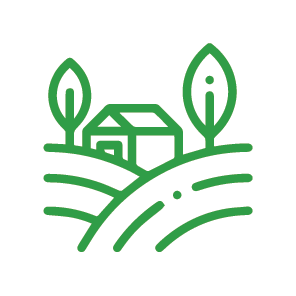
National Food Security
The right to adequate food is a universal human right that is realized when all people have physical and economic access at all times to adequate food or the means for its procurement, without discrimination of any kind.
Despite progress made in reducing chronic hunger, undernourishment still affects at least 690 million people worldwide, and 12.7% (about 25 million) of the Nigerian population.
Climate change and the progressive degradation of soil, drinking water and biodiversity adversely affect food production, increasing the risk of food insecurity. Food insecurity negatively affects human physical, social, emotional, and cognitive development throughout the life course and is a major social and environmental disruptor with serious repercussions for planetary health (i.e., the health of human civilization and the state of the natural systems on which it depends).
Beyond its ethical dimension, hunger and food insecurity take an enormous toll on economies and have adverse consequences for the livelihoods and economic capabilities of vulnerable populations. The costs to society are enormous in terms of lost productivity, health, well-being, decreased learning ability and reduced fulfillment of human potential.
Ensuring food security requires action in multiple dimensions, including: improving the governance of food systems; inclusive and responsible investments in agriculture and rural areas, in health and education; empowering small producers; and strengthening social protection mechanisms for risk reduction.
Strong interdependencies exist between food security and many other parts of a broad sustainable development agenda that addresses questions related to inclusive economic growth, population dynamics, decent employment, social protection, access to clean water, energy, health, sanitation, natural resource management and the protection of ecosystems. Moreover, empowering women and addressing inequalities are as critical to fighting hunger and ensuring food security, as they are to universal sustainable development.